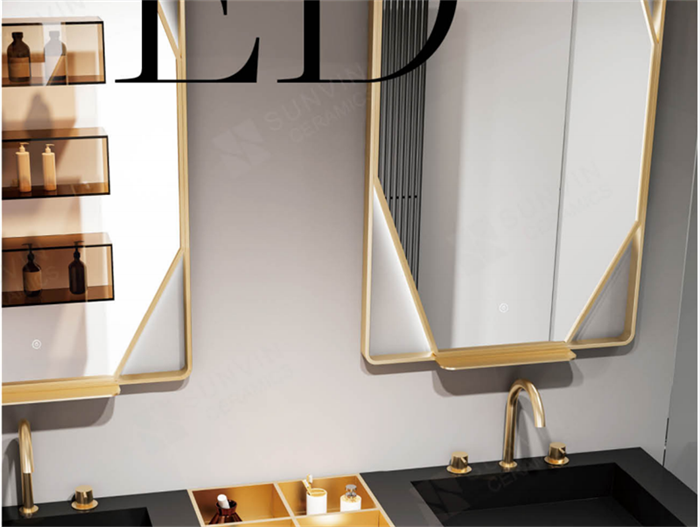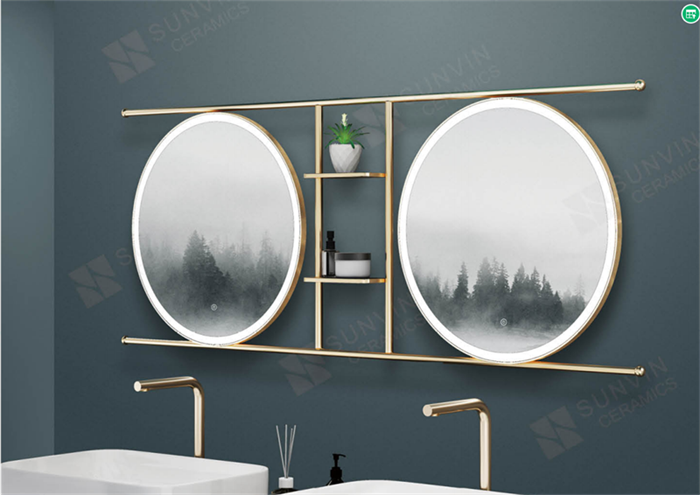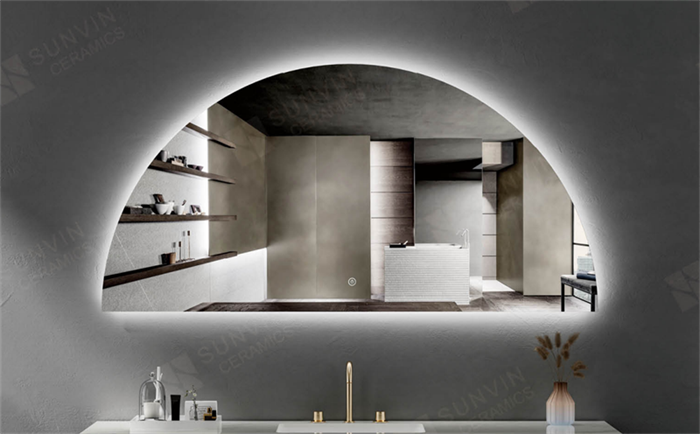When selecting a high quality mirror, several critical elements must be examined to guarantee durability and superior reflectivity. Factors such as the type of backing, glass thickness, and the quality of the silver nitrate coating are paramount in determining the mirror's performance and longevity. Additionally, the craftsmanship involved in polishing or beveling the edges can greatly impact both safety and aesthetic appeal. Understanding these components will not only aid in making an informed decision but also secure that the mirror meets your functional and decorative needs. What specific aspects should you focus on when evaluating these features?
- Opt for mirrors with a thickness of 5mm to 6mm for superior stability and reflectivity.
- Choose mirrors with high-purity silver nitrate coatings for excellent reflectivity and longevity.
- Select mirrors with polished or beveled edges to ensure safety and an elegant finish.
- Ensure the glass is high-grade and flat for clear, distortion-free reflections.
- Verify the mirror has a protective backing, like copper or lead-free silver, to prevent oxidation.

Several key elements determine the quality of a mirror, each contributing to its overall durability, clarity, and aesthetic appeal. One primary aspect is the mirror's backing material. High-quality mirrors often use a copper or lead-free silver backing, which prevents oxidation and guarantees longevity. Inferior mirrors may use low-quality metals that can tarnish over time, compromising both clarity and appearance.
Another pivotal element is the thickness of the mirror. Thicker mirrors, usually between 5mm to 6mm, provide superior stability and reflectivity. Thinner mirrors are more susceptible to warping and distortion, which can lead to inaccurate reflections and a reduced lifespan.
The quality of the reflective coating also plays a significant role. Premium mirrors use high-purity silver nitrate coatings, providing excellent reflectivity and minimal light absorption. This ensures that the mirror reflects a true-to-life image without any color distortion.
Edge finishing is another crucial consideration. Mirrors with polished or beveled edges are not only safer to handle but also add a touch of elegance, enhancing the overall aesthetic appeal. Unpolished edges can be sharp and prone to chipping, thereby reducing the mirror's durability.
The quality of the glass used in mirrors greatly impacts their overall performance and longevity. Opting for high-grade glass guarantees that the mirror delivers a clear, distortion-free reflection, enhancing both functionality and aesthetic appeal. Premium glass is typically free from impurities and inconsistencies, which can cause visual distortions or blemishes over time. Hence, it is crucial to select glass that meets high optical standards for precision and clarity.
One significant aspect to take into account is the flatness of the glass. Mirrors made from flat, smooth glass provide accurate reflections without any warping or distortion. This feature is particularly important for applications requiring high precision, such as in bathrooms, dressing rooms, and decorative settings.
Another essential factor is the glass's resilience to environmental conditions. High-grade glass should be resistant to moisture and temperature fluctuations to prevent issues like fogging or degradation.
Moreover, the production process plays a significant role. Glass manufactured through advanced techniques, such as float glass production, tends to have fewer imperfections and superior uniformity. It is also advisable to check for certifications or quality marks that indicate adherence to industry standards.
When determining the ideal thickness for a high-quality mirror, balancing durability, clarity, and application needs is essential. The thickness of a mirror not only affects its structural integrity but also its optical performance.
Generally, mirrors are available in thicknesses ranging from 1/8 inch (3mm) to 1/4 inch (6mm). For most household and decorative applications, a thickness of 1/4 inch (6mm) is recommended. This provides a sturdy, distortion-free reflection that is less prone to warping over time.
Thicker mirrors are particularly advantageous in larger installations, such as wall-to-wall or floor-to-ceiling mirrors, as they provide additional support and minimize the risk of flexing. In commercial or high-traffic settings, opting for a thicker mirror enhances both safety and longevity.
Thinner mirrors, while more economical, may be suitable for smaller applications or areas where weight is a concern, such as cabinet doors or lightweight frames.
It is important to take into account the specific application and environmental factors when selecting mirror thickness. Ensuring the right balance between thickness, clarity, and durability will guarantee a mirror that not only meets aesthetic expectations but also stands the test of time.

Evaluating the quality of mirror silvering is essential for ensuring long-lasting reflectivity and resistance to corrosion. Silvering refers to the process of coating a glass surface with a reflective metal, typically silver or aluminum. High-quality mirrors typically use silver due to its superior reflective properties. However, the process must be executed with precision to avoid imperfections that can degrade the mirror's performance over time.
When appraising the quality of silvering, one should consider the thickness and uniformity of the applied silver layer. A thicker, more evenly distributed layer will generally provide better reflectivity and longevity. Additionally, the mirror should have a protective coating to shield the silver layer from oxidation and other environmental factors. This protective layer often consists of copper and multiple layers of paint, which enhance durability and resistance to tarnish.
Another critical aspect is the type of glass used for the mirror. Low-iron glass is preferable, as it offers a clearer, more accurate reflection by minimizing the greenish tint typically associated with standard glass.
To summarize, selecting a top-notch mirror involves careful assessment of numerous factors to guarantee its strength, clarity, and visual attractiveness. Begin by checking that the mirror features a thick glass base, which reduces distortion and improves its lifespan. Additionally, confirm the excellence of the silvering process, as a premium reflective layer will maintain the mirror's brilliance over time. Pay attention to the protective backing, which shields against moisture and prevents decay.
Consider the material and craftsmanship of the frame, as these aspects play a crucial role in both the mirror's stability and its aesthetic cohesion with your interior design. Choose frames crafted from sturdy materials like solid wood, metal, or high-quality composites.
Always examine the mirror for any flaws like scratches, bubbles, or uneven reflection. These issues can impact its overall performance and appearance. Moreover, take into account the mirror's dimensions and shape in relation to the space it will occupy to ensure it complements the room effectively.
Lastly, do not underestimate the significance of customer feedback and expert recommendations. They can offer valuable insights into the mirror's real-world performance and durability. By considering these aspects, you can confidently select a mirror that elevates your space with both sophistication and dependability.

For additional help or inquiries regarding your mirror selection, please do not hesitate to contact us. Our team of experts is here to strive that you find the perfect mirror to meet your aesthetic and functional needs. Whether you require guidance on size, style, material, or installation, we are committed to providing professional and personalized advice.
For a more immediate response, you may also use our live chat feature available on our website. Simply click the chat icon in the bottom right corner of our homepage to connect with a representative in real-time.
Additionally, we welcome you to visit our website https://sunvin.com.cn/ where our knowledgeable staff can assist you in person. We look forward to helping you select a high-quality mirror that enhances your space beautifully.
Acquiring a high-quality mirror is an endeavor demanding meticulous attention to detail and an unwavering commitment to excellence. The utmost importance of superior glass quality, ideal thickness, and impeccable silvering cannot be overstated. These factors come together to create a reflective masterpiece that transforms any space into a domain of unmatched elegance and sophistication.
Ensuring beveled edges and advanced backing materials further elevates the mirror from a mere functional object to an enduring proof of craftsmanship and durability.